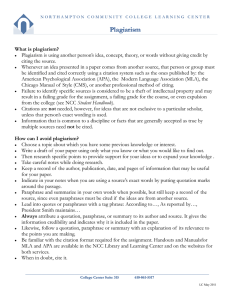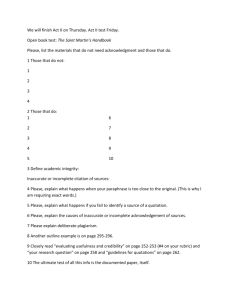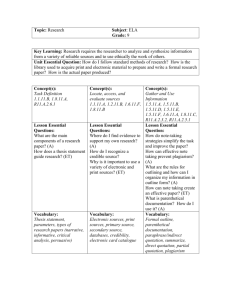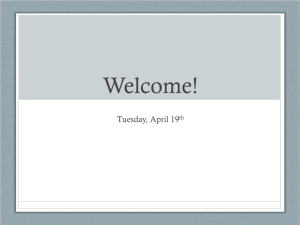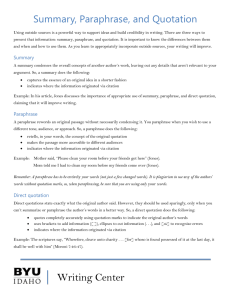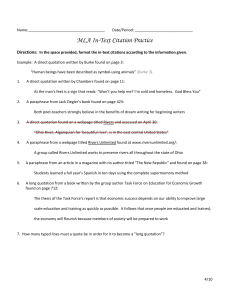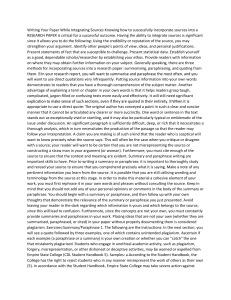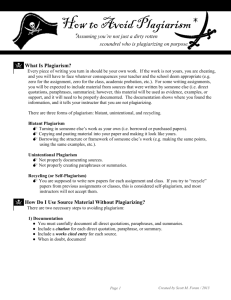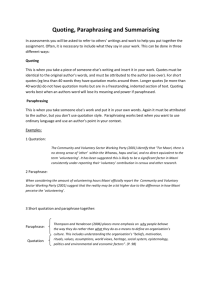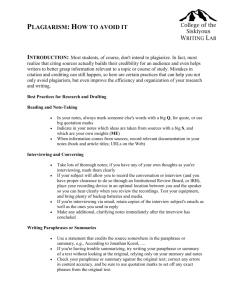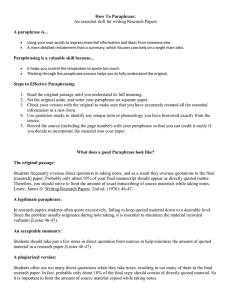when to use quote, paraphrase, or summary?
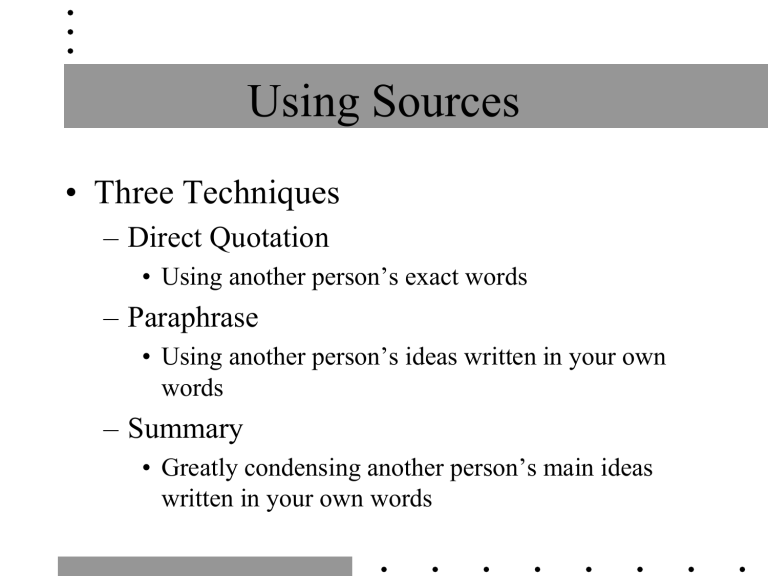
Using Sources
• Three Techniques
– Direct Quotation
• Using another person’s exact words
– Paraphrase
• Using another person’s ideas written in your own words
– Summary
• Greatly condensing another person’s main ideas written in your own words
Direct Quotation
• You must surround another’s words with quotation marks.
• You must name the author and give the page number where the quotation is located.
• You must use the author’s exact words as they appear in the original source.
• If you don’t do these, you are committing plagiarism.
Example of Direct Quotation
• In “Standardized Testing vs. Education,”
Justin James writes that “It is no wonder my niece says school is boring. When she was younger, she loved it. It was all about discovery; now it’s all about tests” (131).
Paraphrase
• You must use your own words to reflect the ideas of another writer.
• You must name the author and give the page number where the paraphrased sentence occurs.
• You must accurately represent the author’s ideas.
• If you don’t do these, you are committing plagiarism.
Example of a Paraphrase
• Original
– The emphasis placed on standardized testing teaches students that education means getting content from a teacher or getting good at a skill.
They come to think education means getting a grade on a test, accumulating points, and arriving at an average grade based on those points.
Example of a Paraphrase (Cont.)
• Paraphrase
– In “Standardized Testing vs. Education,” Justin
James claims that thanks to too much standardized testing, students have begun to mistake vocational training and teachersupplied facts for education, believing that test grades and averages are the true measure of knowledge (131).
Summary
• You must use your own words.
• You must condense a paragraph, passage, or even article into one or two sentences.
• You must name the author and give the page number or numbers where the summarized passage is located.
• If you don’t do these, you are committing plagiarism.
Example of a Summary
• In an early section of the excerpt from
Mein
Kampf , Hitler suggests that many of the things that make us human—art, music, literature, justice, equality, and the pursuit of happiness—must be put on hold during times of extreme crisis when the survival of the nation is at risk (128).

